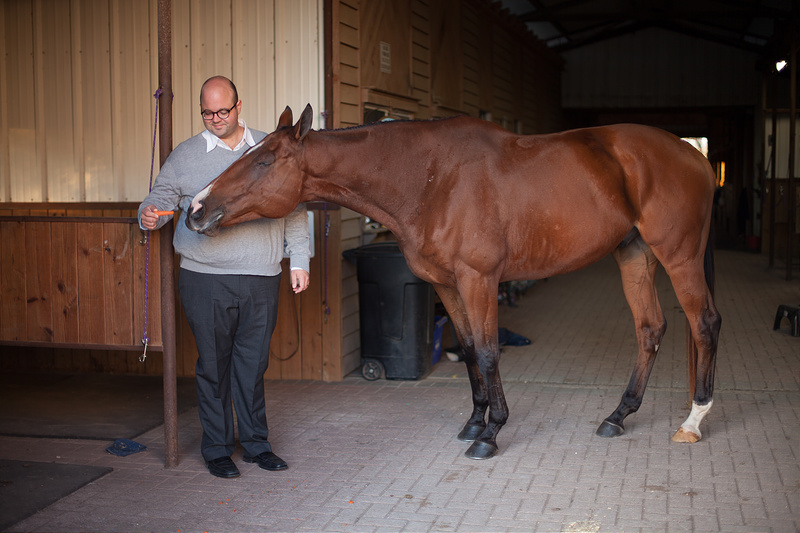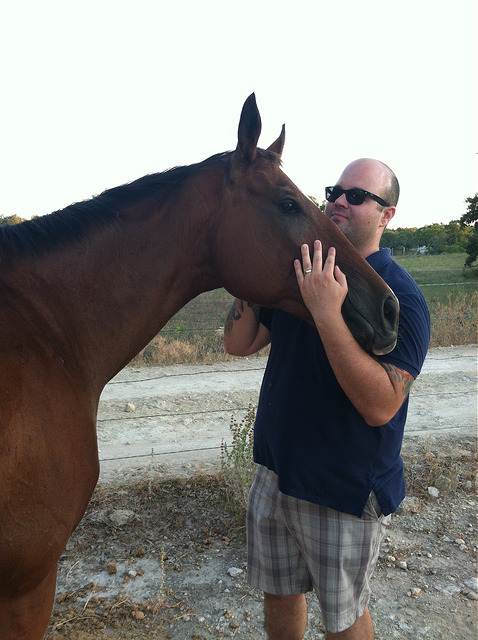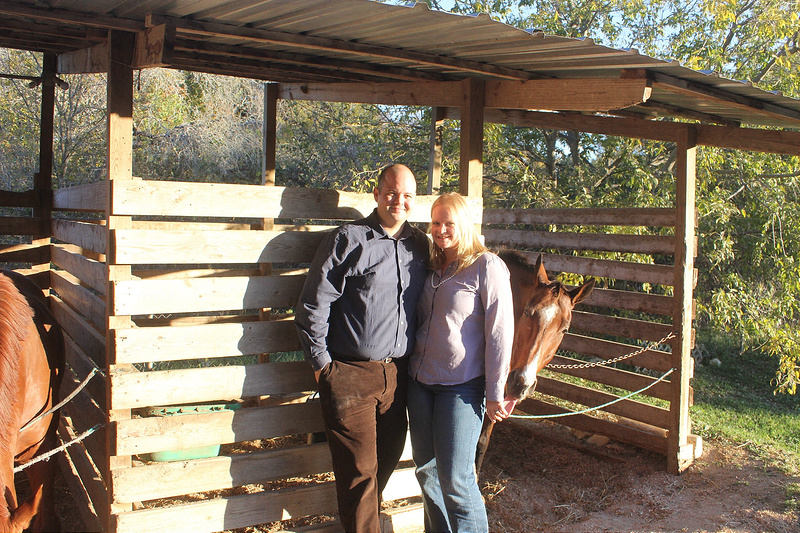My late husband, Tim, was an animal lover but not necessarily a horse person. I taught him everything he knew about riding and horse care. Tim patiently listened about whatever equine injury I was nursing, and watched enough horse shows that he learned to identify wrong leads and missed changes in a hunter round.
It’s true that my husband picked up all his knowledge from me, but it’s also true that he gave me a perspective when it comes to horses that’s more important than lessons from any horse trainer. Without ever having stepped foot in the show ring, Tim taught me some of the best lessons of my equestrian career.
Don’t Focus on the Negatives
When I first started working with my OTTB, Simon, I would come home from the barn and Tim would ask me about how my rides were going. At first I’d go on and on to him about unbalanced cantering, motorcycling through corners and fast, choppy trotting. Tim patiently listed while I poured into detail about flatwork, but after a while he finally asked, “Are you even having fun?”
I was surprised. “What do you mean, am I having fun?”
“Everything you say about this horse is negative,” he replied. “Do you not like him? Was this a bad choice?”
The conversation took me outside of myself for a minute. My husband and I were a team, and we had just taken this new, expensive creature into our family. That was something we mutually agreed on, but now I was coming home and sharing only the problems with my new horse. The next day, I decided to try and explain what was going right with Simon when I came home.
As it turns out, that shift in positive thinking made everything better with our training process. Instead of thinking about all the things I couldn’t do, I celebrated the things we could do. That list started growing, and I had more fun with my new horse. By choosing to redirect my dialogue regarding training Simon, I became more successful with him.
Don’t Spend More Money on a Horse Than You’re Willing to Set on Fire
I think every rider has stretched their budget beyond what they were originally comfortable with, or gotten a little gleam in their eye at the prospect of an “investment horse.” We all know the joke about how the way to make a small fortune with horses is to start with a large one, but sometimes it’s hard to remember that in midst of horse shopping.
After watching me deal with injuries, hearing horror stories and seeing checks fly out of my account towards the pursuit of equestrian greatness, Tim lost all faith in the concept of horses as an investment.
Yes, this seems like an obvious and not exactly inspiring lesson, but you’d be surprised how helpful it is when determining your budget for horse shopping. How do you feel about a significant amount of money walking off the trailer and falling over dead? Well, I think that answer varies per person but being brutally real with the finances of this sport has helped me make reasonably good choices.
Don’t Forget to Believe In Yourself
Whether it was recovering from a bad fall or transitioning from hunters to jumpers, Tim was always my biggest cheerleader. At times I wanted to discount his optimism, telling myself that he wasn’t educated enough about riding or competing to know if I could do something or not.
But riding is about more than the mechanics of distances and scope and oxers. It’s a mental sport. Sometimes knowing someone in the grandstands believes in you matters as much as all of those no stirrup lessons. For me, that person was Tim.
Maybe for you it’s your Mom, or your sibling, or your grandparent or your childhood best friend. Really, it doesn’t matter who that person is, how much they know about equitation or even if they’re here on this earth anymore. When things get hard, and they will get hard, remember they believe in you.
Take that heart, and channel it through your fingers into the reins and down your heels into the stirrups. There’s no telling what you might be able to accomplish.



